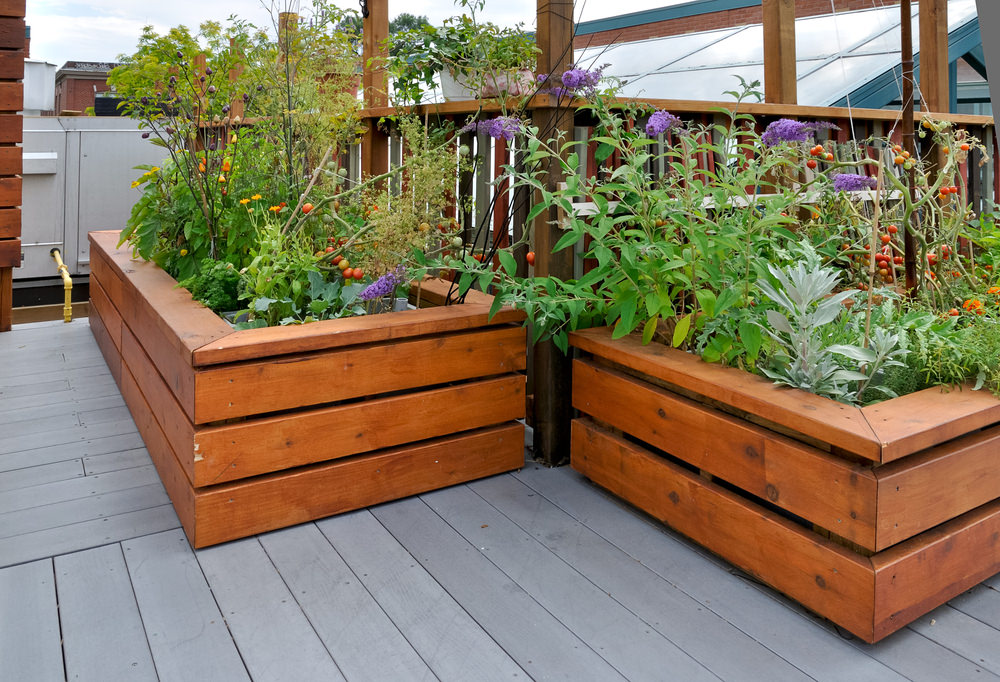For both novice and experienced gardeners alike, raised garden beds are an excellent way to grow your own flowers, vegetables, herbs, and more. Compared to traditional in-ground gardening, elevated beds make planting incredibly easy and accessible. But with so many raised bed options out there, how do you choose? Look no further than Expert Gardener’s line of natural wood small elevated garden beds for a high-quality, budget-friendly option perfect for urban gardening.
In this article, we’ll learn all about Expert Gardener’s natural wood raised beds, their key features and benefits what to plant in a small elevated bed as well as care and maintenance tips. Let’s explore why these compact raised beds are a great choice for your first foray into home gardening.
Expert Gardener has a wide range of gardening supplies to help people with and without green thumbs grow successfully. Their small raised garden beds made of natural wood are a great choice for people who want to try raised bed gardening but don’t have a lot of outdoor space.
These small beds are about 2 feet by 4 feet and stand 2 feet tall. They are made from solid FSC-certified pine wood and have a nice natural finish that goes with any backyard. The tongue and groove panel design assembles easily without tools.
Expert Gardener’s wood raised beds provide all the advantages of elevated gardening in a petite package perfect for small patios, balconies, courtyards and urban lots. Let’s explore some of the key benefits this functional and budget-friendly raised bed offers.
Benefits of Expert Gardener’s Natural Wood Elevated Beds
Some of the top benefits of using Expert Gardener’s natural wood raised beds include:
-
Perfectly Sized for Small Spaces: At just 2 x 4 feet, this compact bed maximizes even the smallest yard or patio. The tall but narrow shape makes it easy to tuck into tight areas.
-
Raised Height Elevating your garden bed makes planting and maintenance easier on your back, knees, and body. No need to bend down thanks to the 2-foot raised design.
-
Good Drainage: Raised beds promote drainage and air circulation which plant roots love. Say goodbye to soggy soil and increase oxygen.
-
Convenient Access The design brings your garden to waist height for quick and easy access. Watering weeding and harvesting are a breeze.
-
Custom Soil: Fill your raised bed with premium potting mix specifically formulated for optimal plant growth. Forget trying to amend existing poor soil.
-
Attractive Appearance: The natural pine wood integrates beautifully into yards. Its neutral wood tone pairs well with landscaping.
-
Affordable Price: Expert Gardener offers an very competitively priced raised bed perfect for beginners not looking to splurge.
Thanks to these useful features and benefits, Expert Gardener’s small elevated garden bed is ideal for your first foray into raised bed gardening.
What to Plant in a Small Raised Bed
While compact, a 2×4 foot raised bed provides ample room to grow a variety of vegetables, herbs, flowers and more. Here are some of the best options for small garden beds:
Vegetables: Bush beans, beets, broccoli, carrots, kale, lettuce, peas, peppers, radishes, spinach, Swiss chard
Herbs: Basil, cilantro, dill, mint, oregano, parsley, rosemary, sage, thyme
Flowers: Cosmos, marigolds, nasturtiums, pansies, petunias, snapdragons, zinnias
Fruits: Strawberries, dwarf blueberries
Others: Green onions, garlic, dwarf tomatoes, bush zucchini
When planning your garden layout, opt for compact, bushy vegetables over trailing vines. Stagger plantings over seasons to maximize yield in the cozy space. Adding trellises and vertical gardening can also help use space efficiently.
Caring for Your Expert Gardener Raised Bed
Like any garden, raised beds require some degree of care and maintenance:
-
Water regularly – about 1-2 inches per week. Monitor soil moisture frequently.
-
Fertilize: Apply slow-release granular fertilizer 2-3 times per season. Compost and organic matter also nourishes plants.
-
Weed: Stay vigilant pulling weeds, especially when plants are young. Weed barrier fabrics can help.
-
Pest control: Take action at the first sign of insects or disease. Remove pests by hand or use organic sprays.
-
Overwinter: Remove dead summer plants in fall. Plant cold-tolerant greens or cover beds with mulch.
Your raised bed will also last longer with proper care. Stain or seal the wood annually to protect from weathering. Clear away heavy snow piles which can damage the bed.
Grow Your Best Garden in an Expert Gardener Raised Bed
Expert Gardener’s natural wood small elevated garden beds offer the perfect way for urban dwellers and small-space gardeners to enjoy the benefits of raised bed gardening. Compact enough for patios yet spacious for lush gardens, the 2×4 foot pine wood bed brings convenience, quality, and beauty to your green thumb pursuits without breaking the budget.
Maximize every square inch using smart layouts and succession planting to yield bountiful flowers, veggies and herbs from these charming, pint-sized beds. Maintain your garden with consistent watering, fertilizing, weeding and pest prevention. Add a pop of color or bounty of tomatoes to patios, balconies, and tiny yards with Expert Gardener’s space-savvy elevated garden beds.
I Put together the “Expert Gardener” Raised Garden Bed!!
FAQ
What is the best wood for a raised garden bed?
What are the disadvantages of raised garden beds?
Which wood should you avoid when constructing a raised bed?
- The Ultimate Guide to Growing Strawberries in Raised Beds - August 8, 2025
- No-Dig Garden Beds: The Easiest Way to Grow a Beautiful Garden - August 6, 2025
- How to Protect and Preserve Wood for Raised Garden Beds - August 6, 2025

